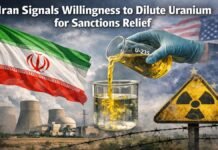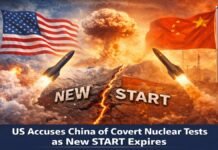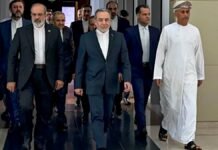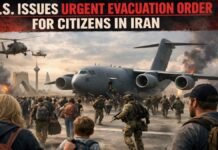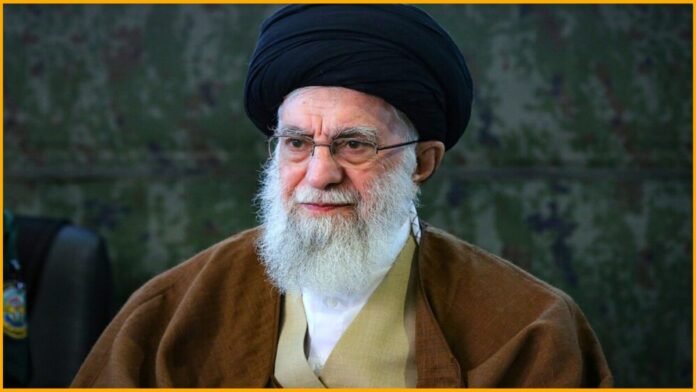
Key points
- Khamenei said direct talks with Washington bring “no benefit” and could cause “irreparable” harm, closing the door on U.S.–Iran negotiations for now.
- He vowed Iran “will not surrender” or halt enrichment under pressure, signaling no compromise on core nuclear activities ahead of potential UN snapback.
- The E3 launched the 30‑day snapback process on Aug 28; with time expiring in late September, European leaders say reimposition is likely without swift Iranian steps.
- The UN Security Council declined to permanently lift sanctions, leaving a narrow window for an agreed delay before measures automatically return.
- IAEA access collapsed after June attacks on Iranian nuclear facilities; inspectors were withdrawn and Iran later suspended cooperation, with limited exceptions.
- The June conflict saw Israeli strikes on nuclear sites followed by U.S. strikes announced by President Trump, which U.S. assessments say only set Iran back by months.
New Delhi: Iran’s Supreme Leader Ayatollah Ali Khamenei has ruled out any direct nuclear talks with the United States as potential UN “snapback” sanctions loom, arguing such negotiations would harm Iran and yield no benefit, while insisting uranium enrichment will not be halted under pressure. European powers are pressing for strict monitoring and access by the IAEA as part of last-ditch efforts to avert the automatic reimposition of UN sanctions this month, amid a tense backdrop of June strikes on Iranian nuclear sites by Israel and subsequent U.S. strikes announced by President Donald Trump.
Khamenei rejected proposals for direct talks with the United States in a televised address, asserting that negotiations would not benefit Iran and could inflict lasting damage under current circumstances. He emphasized Iran would not “surrender to pressure” and would not halt uranium enrichment, underscoring a hard line as sanctions decisions approach.
Sanctions countdown
Britain, France and Germany triggered the UN snapback mechanism on Aug 28, starting a 30‑day clock that would automatically restore pre‑JCPOA sanctions if no agreement to delay is reached, bringing the deadline to late September. The UN Security Council did not adopt a resolution to permanently lift sanctions, leaving a narrow path for a last‑minute delay that European and Iranian officials have struggled to secure. France’s President Emmanuel Macron said reimposition by month‑end is likely, barring credible Iranian steps to restore monitoring and access.
Monitoring and enrichment status
European statements at the IAEA Board cite Iran’s enriched‑uranium stockpile at roughly 48 times the JCPOA limit, including material enriched up to 60%, heightening proliferation concerns absent robust verification. Following June attacks on Iranian nuclear facilities, the IAEA withdrew inspectors for safety reasons and Iran subsequently suspended broader cooperation, with only limited access at Bushehr noted in official reporting. IAEA Director General Rafael Grossi has engaged Tehran and the E3 on contingency inspection arrangements, but access remains constrained pending any political deal.
June war backdrop and U.S. strikes
Israel launched strikes on multiple Iranian nuclear and military sites beginning June 13, prompting an intense 12‑day conflict that drew in the United States, which President Trump said struck three key nuclear facilities on June 22 using B‑2 bombers and other assets. Subsequent U.S. assessments indicated the strikes set back Iran’s nuclear capabilities by months rather than eliminating them, complicating diplomatic off‑ramps while raising the stakes for verification of any residual stockpiles and facilities. The IAEA documented that the June attacks precipitated the withdrawal of inspectors and a breakdown in on‑site verification, exacerbating uncertainty over Iran’s program.
Europe’s demands and Iran’s posture
The E3 and EU have demanded Iran restore full IAEA access, reverse recent escalations, and address high‑level enrichment as prerequisites for delaying snapback and reviving a monitoring baseline. Iranian leaders, including President Masoud Pezeshkian, publicly argue Iran can weather any renewed UN sanctions, while Tehran warns cooperation with inspectors could further diminish if sanctions return.
What to watch next
If snapback proceeds, UN measures would restore the arms embargo, bans on enrichment and reprocessing, ballistic‑missile‑related restrictions, asset freezes, and cargo inspections authorities, reshaping Iran’s external environment overnight. Any interim arrangement would likely hinge on immediate IAEA access, capping enrichment levels, and a verifiable inventory of stockpiles and centrifuges—issues complicated by post‑June damage and restricted inspector presence.








































